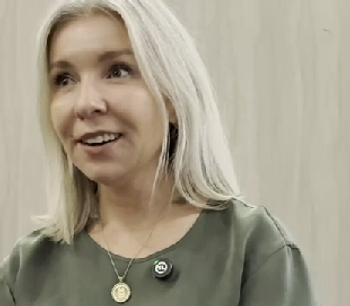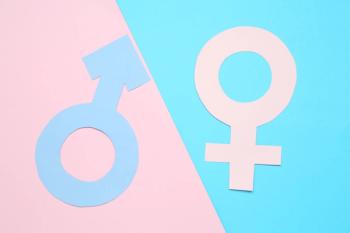
Father’s Day and Men’s Mental Health
Key Takeaways
- Societal shifts have challenged traditional fatherhood roles, with men facing educational, employment, and mental health issues.
- Video gaming, especially Nintendo Switch, offers narratives countering hypermasculinity, promoting empathy and resilience.
Let's explore the evolving role of fathers, societal shifts, and the impact of gaming on male identity and mental health.
PSYCHIATRIC VIEWS ON THE DAILY NEWS
I am glad that we are posting this column the day after Father’s Day because it is a bit of a downer. But, then again, psychiatry often looks for the trouble that is being covered up otherwise.
As societal norms and laws shift, and the role of men changes, being a valued father has been placed in jeopardy.1 Biologically, boys have traditionally lagged behind girls except in physical process and strength, but now:
- In a reversal, more women earn college degrees now than men.
- The proportion of women employed grew significantly, while that of men has been decreasing, especially men under the age of 35.
- Without good jobs, men are less likely to marry and to have significant relationships with their children.
- Young men have higher rates of suicide, substance use disorder, and being sent to prison.
Less than 2 weeks ago, on June 5, the new game system called Nintendo Switch 2 came out and sold over 3.5 million units in the first few days. Though mainly selling to boys, the involvement of girls has increased, too.
Many years ago when he was young teenager, our son wanted a Nintendo. My wife was against it and we refused. Instead, we supported him learning the new Commodore computer and the importance of developing computer skills.
When the new Nintendo Switch came out, our now middle-aged son paid little attention. When I told him about the New York Times article of June 5 “Returning to Nintendo Games Helped Heal My Inner Child,”2 he was pleased to know that his early interest seemed to have some merit. The author of the article emphasized that the Nintendo’s cadre of mascots taught how to care and how to be kinder compared to competitors supplying edgier and more aggressive games. That was an antidote of sorts for the usual emphasis on hypermasculinity. Over the years, games on Switch also helped to examine power dynamics and overcoming adversity in more meaningful ways.
Historically, games and gaming have probably been the biggest and most influential of all societal pastimes.3 Apparently, now polling multiplayer video gamers is becoming a good political predictor of the results of political races.
Historically, too, women have had a traditional childbearing and child-rearing role. Whether another option for these roles will technically become available some day is unclear.
In most societies over history, boys have undergone some sort of challenging ritual transition during adolescence. They then went on to be protectors and providers. Perhaps this is still repeated in male political power in America, but overall is much less emphasized in modern society. For example, Boy Scouts of America has been replaced by Scouts America.
Given some of the differences between men and women, fathers have potential added value. In homosexual parents, having 2 parents is potentially helpful in itself to share responsibilities, and that could also hold true for heterosexual parental partners as long as the parenting is more complementary than conflictual.
In psychiatry, women have come for treatment more often than men. Women tend to turn more to a “grin and bear it” mindset than to alcohol and other street drugs. In couples therapy, men are less likely to want to attend and share.
What may help boys and men while not hurting the gains of girls and women? Androgynous humanity may still provide enough diversity in skills and capabilities. Though games and gaming have their limitations, like limited live interactions, some can also provide positive models of adaptation for both boys and girls.
Optimizing the potential roles of all genders is essential for the functioning and well-being of society.
Dr Moffic is an award-winning psychiatrist who specialized in the cultural and ethical aspects of psychiatry and is now in retirement and retirement as a private pro bono community psychiatrist. A prolific writer and speaker, he has done a weekday column titled “Psychiatric Views on the Daily News” and a weekly video, “Psychiatry & Society,” since the COVID-19 pandemic emerged. He was chosen to receive the 2024 Abraham Halpern Humanitarian Award from the American Association for Social Psychiatry. Previously, he received the Administrative Award in 2016 from the American Psychiatric Association, the one-time designation of being a Hero of Public Psychiatry from the Speaker of the Assembly of the APA in 2002, and the Exemplary Psychiatrist Award from the National Alliance for the Mentally Ill in 1991. He presented the third Rabbi Jeffrey B. Stiffman lecture at Congregation Shaare Emeth in St. Louis on Sunday, May 19, 2024. He is an advocate and activist for mental health issues related to climate instability, physician burnout, and xenophobia. He is now editing the final book in a 4-volume series on religions and psychiatry for Springer: Islamophobia, anti-Semitism, Christianity, and now The Eastern Religions, and Spirituality. He serves on the Editorial Board of Psychiatric Times.
References
1. Reeves R. Of Boys and Men: Why the Modern Male is Struggling, Why It Matters, and What to Do About It. Brookings Institution Press; 2024.
2. Michel J. Returning to Nintendo games helped heal my inner child. New York Times. June 5, 2025. Accessed June 16, 2025.
3. Video games remain America’s favorite pastime with more than 212 million Americans playing regularly. News release. July 10, 2023. Accessed June 16, 2025.
Newsletter
Receive trusted psychiatric news, expert analysis, and clinical insights — subscribe today to support your practice and your patients.







